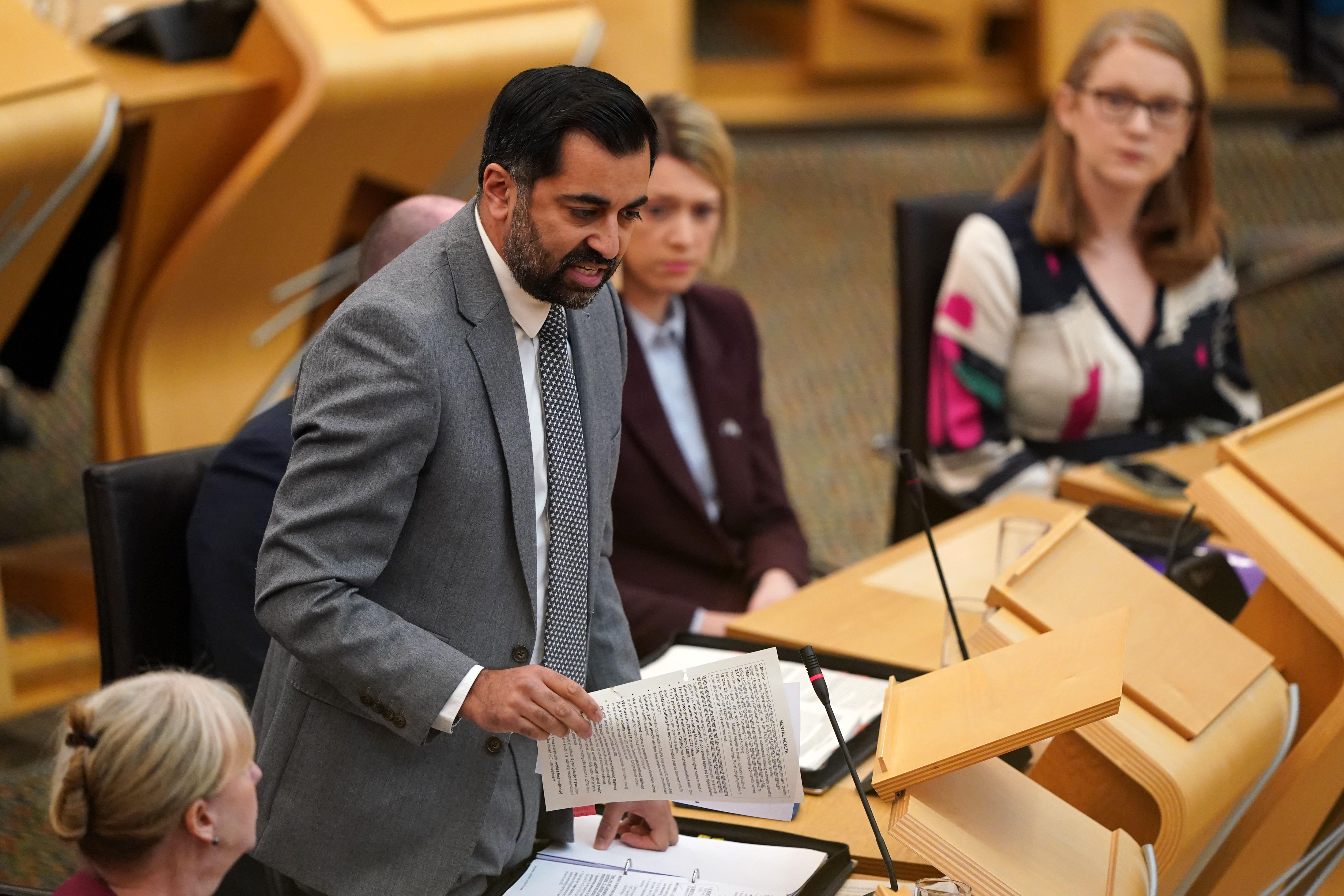Disinformation being spread about Hate Crime Act, First Minister claims
The Hate Crime Act will come into force on April 1 despite fears of its impact on free speech.

Your support helps us to tell the story
From reproductive rights to climate change to Big Tech, The Independent is on the ground when the story is developing. Whether it's investigating the financials of Elon Musk's pro-Trump PAC or producing our latest documentary, 'The A Word', which shines a light on the American women fighting for reproductive rights, we know how important it is to parse out the facts from the messaging.
At such a critical moment in US history, we need reporters on the ground. Your donation allows us to keep sending journalists to speak to both sides of the story.
The Independent is trusted by Americans across the entire political spectrum. And unlike many other quality news outlets, we choose not to lock Americans out of our reporting and analysis with paywalls. We believe quality journalism should be available to everyone, paid for by those who can afford it.
Your support makes all the difference.Scotland’s First Minister has said “disinformation” is being spread about a controversial piece of legislation due to come into force in April.
The Hate Crime and Public Order (Scotland) Act was passed by MSPs in 2021, creating a new offence of stirring up hatred based on protected characteristics – matching a similar offence of race already on the statute book.
The law – which also consolidates other hate crime regulations – has proven controversial since it was introduced by the Scottish Government, particularly around its potential impact on free speech.
This week, reports emerged the police could target performers under the Act, based on training undertaken by officers.
Speaking during First Minister’s Questions on Thursday, Humza Yousaf said: “There has been a lot of disinformation that has been spread on social media and some inaccurate media reporting, and indeed by our political opponents, so I’m hoping in this exchange we can shed more light than heat on what is actually in the Act as opposed to what is being said about it.”
Stirring up hatred offences, the First Minister said, were “nothing new in Scotland”, adding: “If I have the protection against somebody stirring up hatred because of my race – and that has been the case since 1986 – why on earth should these protections not exist for someone because of their sexuality, or disability, or their religion?”
The First Minister added there was a “very high threshold” to be met for prosecution.
Scottish Tory leader Douglas Ross said: “We opposed the legislation at the time and still oppose it now because of the impact it has on free speech for people across this country.”
He added that the Scottish Police Federation (SPF) said officers struggle to deal with “existing crime, let alone this new law”.
“Humza Yousaf has reduced officer numbers to the lowest level since Police Scotland was formed, now officers are being told to not investigate actual crimes, but instead they’ll have to look for the hate monster, police free speech,” he said.
We’re a rights-based organisation and our officers balance human rights against individual laws every single day, and this new Hate Crime Act is no different
“Criminals will be let off while innocent people are prosecuted.
“Isn’t Humza Yousaf setting the police up for failure and undermining public trust in policing?”
Responding, the First Minister said: “With that contribution, it is Douglas Ross that is undermining the fight against hatred, absolutely undermining it completely and entirely through so much disinformation.”
Mr Yousaf went on to claim there was a “triple lock” in the act to preserve freedom of expression, including an explicit clause, a defence for the accused’s behaviour being “reasonable” and the Act is compatible with the European Convention on Human Rights.
He added that the freedom to criticise, insult and offend “exists and should be treasured”, while he added that he had “full confidence” in police to look beyond “vexatious” claims.
The First Minister also said Mr Ross was “incorrect” in his assertion about declining police numbers, claiming the number has increased since the SNP took over.
While that is true, Mr Ross was correct in saying officer numbers have dropped since the formation of Police Scotland – from 17,324 in the second quarter of 2013 to 16,613 in the third quarter of last year.
Mr Ross also questioned the First Minister on claims from the SPF that just two hours of online training was being given to officers on how to deal with the legislation, which Mr Yousaf said was an operational matter for the Chief Constable.
Chief Constable Jo Farrell told a board meeting of the Police Scotland oversight body, the Scottish Police Authority, on Thursday that the force is used to enforcing new legislation and officers are being trained to apply the law in a “measured way, using their discretion and their common sense”.
She said: “We’re a rights-based organisation and our officers balance human rights against individual laws every single day, and this new Hate Crime Act is no different. In fact, it contains a specific reference to the protections people have around freedom of expression.”
She said “hate crime is deplorable and it can cause deep psychological harm”, and officers will apply the new law “proportionately and uphold people’s right of expression”.
Ms Farrell said any chilling effect on freedom of speech will be guarded against through “tight quality assurance” and keeping a “very, very close eye on ensuring that we find the balance between alleged criminality and freedom of expression”.
She said training and workshops are in place for officers as well as more than 500 hate crime champions to provide support.